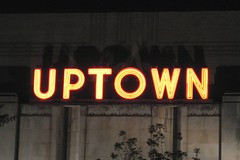I’m with those (including Senator Harkin–see yesterday–and George Miller, who is a key US Representative) who decry the narrowing of the American school curriculum in recent years. The reason seems to be relentless pressure to raise math and reading test scores. Social studies, science, arts, music, physical education, extracurricular activities, and service-learning appear to have suffered.
It’s not self-evident that this is a problem–maybe we should focus our attention on attaining universal numeracy and literacy. But I believe that the narrowing is harmful because education should have broader and higher goals than basic academic skills. Besides, Senator Harkin is correct that activities like music and service motivate kids and keep them in school.
But what to do about the narrowing problem? I can think of six policy options, none perfect:
1. Fund particular programs or types of programs, such as arts or service. Drawbacks: The amounts of money will be small and may not make much difference for most kids. Small programs use up a lot of their funds on administration. We can’t trust the worst school systems to spend the money well or devote it to the kids who need it most.
2. Increase general funding for education, on the theory that dollars are fungible; if we cover fixed costs like facilities or special education, schools will spend more money on arts, service, etc. Drawback: They may not actually spend the money for those purposes, or use it well. Also, money is not the only limited resource; equally important is time.
3. Hold schools accountable for providing specific educational opportunities, such as school newspapers, music, or service-learning classes. Drawbacks: This means extra layers of accountability for schools that are already buried in rules. Unless these mandates come with cash, the burden is particularly unfair.
4. Hold schools accountable for student outcomes in areas like civics, arts, and health. Drawbacks: This means an extra layer of tests. Besides, tests don’t always measure the impact of programs; they may reflect students’ home backgrounds. And it’s hard to develop high-stakes tests of attitudes and values.
5. Relax federal tests and rules that interfere with broad education. Drawbacks: Civil rights organizations will–with some justification–complain that relaxing the rules will allow schools again to tolerate poor outcomes for minority kids, poor kids, and disabled kids.
6. Avoid federal law altogether and focus on the states or school districts. Drawbacks: It’s very hard to organize systematic change in 50 states, let alone tens of thousands of districts.
